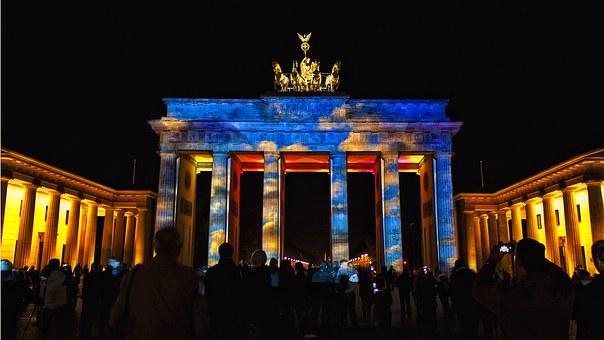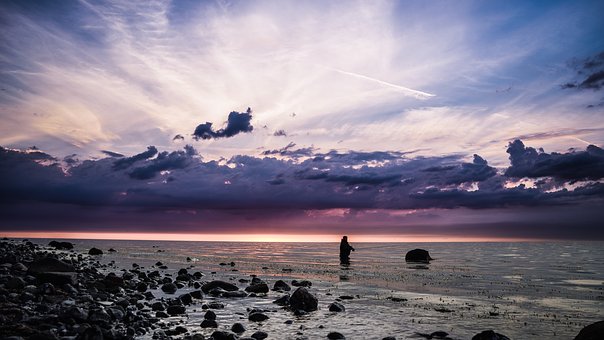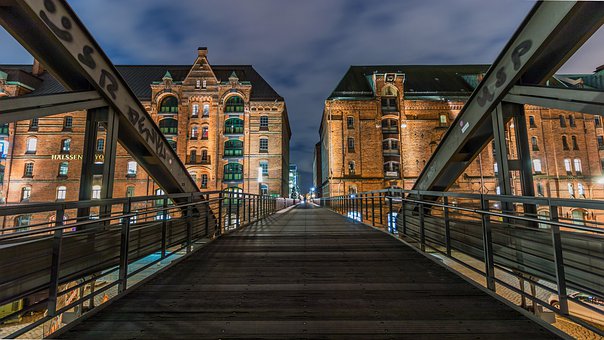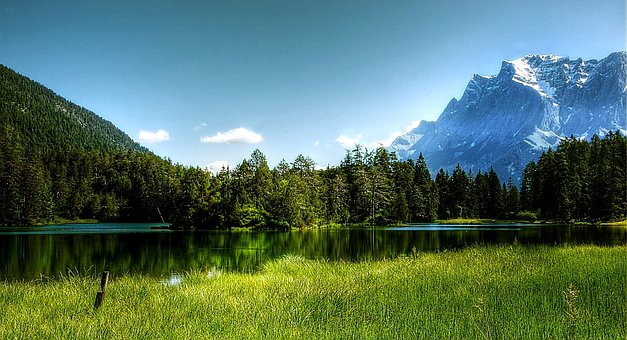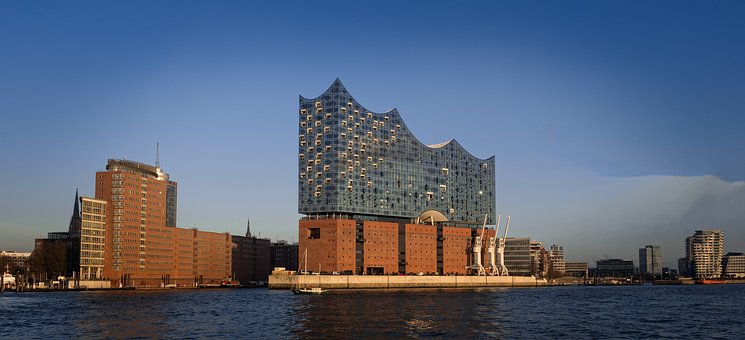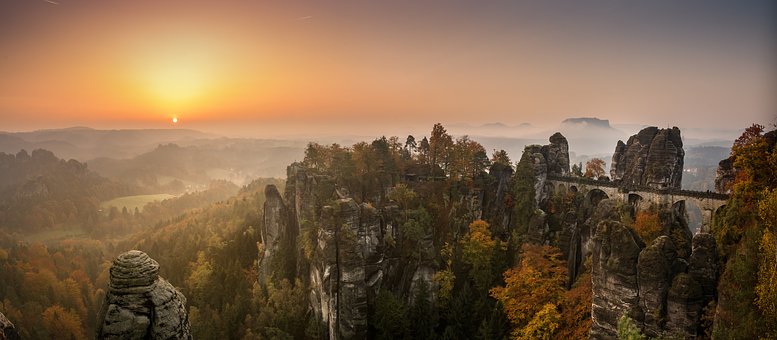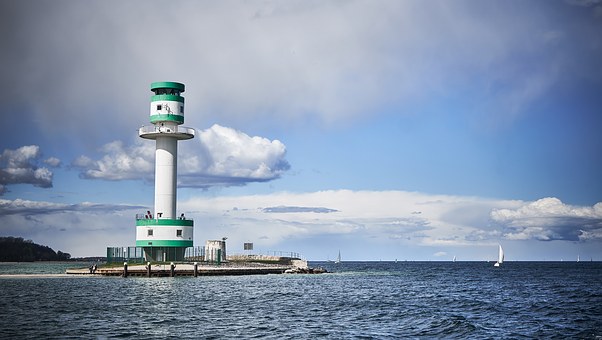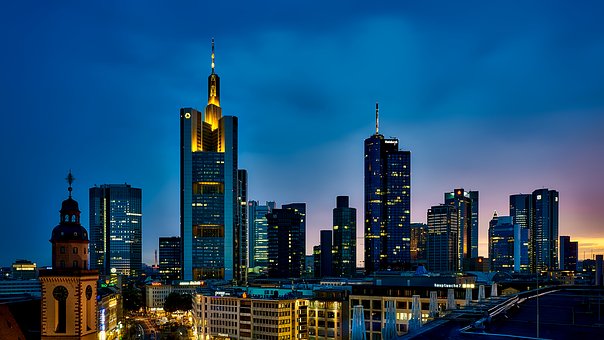Backpacking in Germany
Traveling in Germany may not seem as exciting to you as traveling through Africa, Asia or South America because you lack the unique adventures and cultures. Nevertheless, the country has unique, unimagined treasures to offer, which you can explore on your backpacker trip. The adventure is right on your doorstep, without you sitting on the plane for hours until you reach your destination.
Everywhere there is a well developed traffic network. What also speaks for a trip through Germany are no serious illnesses with which you can get infected, no attacks and further negative things. Even if this sometimes causes a certain thrill, you’ll travel much more relaxed in Germany. Furthermore, Germany is no less attractive, as there are also scenically unique and historical spots.
Cities like Berlin, Cologne, Heidelberg or Weimar are important and have written great history. The 15 national parks are just as exciting. There are many places which belong to the UNESCO World Heritage. In addition to Cologne Cathedral, there are Aachen Cathedral, six modern Berlin housing estates, the Wadden Sea in the North Sea and the Ice Age Caves in Baden Württemberg.
You can get from A to B easily by bus, train or plane, as an optimal transport infrastructure connects all cities and towns with each other. The capital with its seat of government is Berlin, where all the threads of politics, business and culture converge. Around 81 million people live in Germany. With almost 3.6 million inhabitants, the German capital is the most densely populated city. With an area of 892 square kilometres, it is also the largest.
With your EC card and credit card you can get cash at all ATMs. You can also pay everywhere with your cards. But don’t forget that you have to pay fees for withdrawing money from third-party banks, which are not insignificant. Therefore, when withdrawing money with the EC card, you should look out for your house bank or partner banks.
Accommodation offers you a wide range of options. There are many hotels, pensions, guesthouses, hostels and youth hostels as well as privately rented rooms where you can stay. In many places you will also find great campsites that have a lot to offer depending on the standard.
The varied cuisine in Germany has its unique delicacies, which you should definitely try, depending on the federal state. You’ll also find Greek, Italian, Turkish and Asian snacks on every corner, as well as well-known fast food chains that satisfy your hunger with delicious dishes while backpacking in Germany.
Above all, the cultural and artistic diversity that the country has to offer is exciting. Besides many small events in the different cities there are big festivals like Wacken, Rock am Ring, Rock im Park and some more, where you get different genres of music and a special atmosphere. Germany has so many unique things to offer and they are right on your doorstep!
Culture in Germany
The Germans are a very proud people with a strong national consciousness, who have survived wars, rebuilt the country and made it what it is today. The flourishing economy makes Germany an economic power. More than in any other country, Germans enjoy many advantages that do not exist in other countries. That is why Germany is a sought-after country to live and work in.
Each individual federal state has its own regional characteristics, which are also reflected in the population. When you travel to Cologne, for example, you experience a colourful culture. The original Cologne native is very friendly, but has the peculiarity of being rather non-binding. In the north, you will first be looked at suspiciously and received with restraint. But if the northern lights have taken you into their hearts, lifelong friendships will result.
The south shows itself completely different again. Restraint is often coupled with a certain arrogance, especially when you are travelling in Munich. It is certainly based on the fact that Bavaria is considered a Free State and that people want to stand out from the rest. The East, the former GDR, had a lot to catch up after the fall of the Wall. In a divided Germany, everything that drove the development of the West was kept away from the East.
Germany has a distinct cultural and art history, which has produced a multitude of epochs, styles and personalities since the Middle Ages. In various fields there have been and still are cultural companions who bring forth new intellectual currents and developments. Some of the most important German artists are still among the protagonists of Western civilization today.
In addition to German culture, you can also immerse yourself in other cultures. Because these are strongly represented especially in the large cities of the country, so that an interesting, multicultural mixture results. In some districts of the big cities you even have the feeling that you are not in Germany because other cultures dominate life here.
Germany presents you with a lively and colourful art and culture scene, as the Germans are a people of poets and thinkers. Wolfgang von Goethe and Schiller as well as the two philosophers Friedrich Hegel and Immanuel Kant come from Germany. Cultural events such as the Berlinale in Berlin and the Richard Wagner Festival in Bayreuth await you everywhere. In addition to the well-known cultural highlights, there are many things to discover such as galleries, lively cabarets and spectacular architecture and art.
More Backpacking Information about Germany
Compared to Asia, Africa and South America, backpacking in Germany is much more expensive. You will need between 50 and 70 euros a day to travel comfortably through the country.
On your exploration tour you can expect cultural specialities and wonderful landscapes. To the south there are impressive mountain ranges, to the north flat land, the indescribable North Sea coast with its Wadden Sea and the offshore islands. The east and the Baltic Sea coast have a very special charm, because there is still a lot of untouched nature. In the west of Germany you will find exciting industrial history, as well as recultivated areas after the mining of brown coal and you can go on a cultural journey through time.
There are overnight accommodations everywhere. In Germany there is a dense network of youth hostels and hostels where you can get a place to sleep for as little as 12 euros. The average prices of hostels and youth hostels are very different from city to city and settle between 20 and 50 euros.
Germany offers you an infinite variety of dishes, which are typically German and differ considerably from region to region. Since the German cuisine is very hearty, it is not necessarily everyone’s cup of tea. But you should definitely try it.
Due to the versatile and unique culture, you won’t be able to avoid bordering on it. Because on every corner there are cultural-historical buildings, monuments and artistic remains from times long gone, which you inevitably stumble upon.
As a German citizen, you can move freely around the country as you please. This also applies to backpackers from all countries that belong to the European Community. What else is important to know about a backpacker trip through Germany, you can find under Visa & Vaccinations.
Backpacker Budget in Germany
Travelling and living in Germany is not as cheap as in preferred backpacker countries like Asia, South America or Africa. But in return you get a lot on offer in every respect. As a rule, you must expect a daily budget of 50 to 70 euros. Even though many sights are free of charge, there may be additional costs for museum visits and other things. Therefore you should plan some extra budget. The local currency is the Euro.
Due to the high economic performance, the euro is very stable. For a simple meal in a snack you pay between 5 and 7 euros. In the restaurant, the prices for a meal and a drink are around 10 to 12 euros. But it’s also much more expensive if you decide to go to an upscale restaurant. The prices for a 0.33 litre glass of beer are between 1.50 and 2.00 euros. But in bars you pay much more. For a glass of Coke you pay about 2 Euro. Water in 1.5 litre PET bottles already costs around 0.30 euros at discounters.
Taxi driving Bus driving in Germany
The local transport companies, which travel for you by bus and tram, offer different tickets. There are short- and long-haul tickets, single and quad tickets as well as day, week and month tickets. If you want to see and experience many things in a certain city on one day, a day ticket is worth it. For a longer stay in one place, you should prefer a weekly or monthly ticket, as these are cheaper than a single ticket. Driving a taxi really costs money. Because there are more than 350 taxi fares. The basic fare varies from 2.50 up to 4.40 Euro. In addition, there are additional costs for each kilometre driven, waiting times and bulky luggage. Sometimes, however, you can negotiate a fixed price with the taxi driver for a certain route.
Bus driving in Germany
Buses take you all over the country. The buses are comfortable and run according to a regular timetable. The bus stations are located directly in the city centres or just outside, so you will have to use other means of transport. Flixbus is an interesting way to get from one city to another. In addition, you can enter your itinerary and travel date on reisebus24.de and compare different providers with each other.
Domestic fares in Germany
Flying from one city to another is possible from all major airports such as Munich, Frankfurt, Cologne/Bonn, Düsseldorf etc.. There are different airlines available for this. The prices for a flight are very different. Sometimes you can get a nice bargain if you book at short notice.
Train travel in Germany
A good option for backpacking is the Deutsche Bundesbahn, which takes you everywhere. Sometimes you have to change trains because there are different train lines. There are regional trains and intercity connections. A fast connection is the ICE, which rushes through the landscape on specially developed rail networks throughout Germany at speeds of up to 300 kilometers per hour. In addition to the normal tickets, there are great offers for various train connections, where you only pay around 29 euros for a trip through the whole of Germany. The normal fare is also cheaper with a Bahn-Card of the Bundesbahn.
Backpacker Route in Germany
Since the country has so many special features to offer, you can plan your backpacker route very differently. For shorter trips you should choose a corner of Germany such as the north, south, west or east if you want to discover a lot. Another possibility is a city trip, where you travel from Hamburg via Bremen, Lübeck, Berlin west to Cologne and further direction Frankfurt to Munich.
The attractions waiting for you are just as varied as the individual regions. Hamburg has the Reeperbahn and the wonderful harbour with old warehouses. Cologne is not only home to the Cologne Cathedral. Rather, you have the opportunity to explore the city in the footsteps of the Romans and to immerse yourself in the history of the city.
Berlin, the federal capital, presents itself as a lively metropolis that you can’t experience in one day. Because every part of the city has its own unique characteristics, which you simply have to immerse yourself in. The metropolis of Frankfurt is the city of big money transactions. The skyline is dominated by high banks, which is why Frankfurt is also known as Mainhatten.
There are indescribable landscapes with a wonderful flora and fauna, breathtaking lakes, unique banks along the Rhine, waterfalls, hidden gorges and caves to explore. What should you have seen on your backpacker trip?
Route 1: The classic (15-20 days)
- 3 days Berlin the cosmopolitan capital of the country explore and into the indescribable history immerse.
- 2 days discover Brandenburg and the wonderful nature in the Spreewald.
- 1 day in Dresden to enjoy the flair on the banks of the Spree.
- 3 days museum tour in Munich and discover Bavarian culture.
- 2 days exploring Frankfurt and immersing yourself in the art and music scene.
- 2 days in Cologne. Immerse yourself in the history of the city and enjoy the Cologne way of life.
- 2 days discovering the Ruhr area with unique industrial art.
- 2 days experience the North Sea coast on the beaches of Cuxhaven.
- 3 days exploring Hamburg. Reeperbahn and harbour tour included.
Route 2: Backpacker Intensive Trip (up to 40 days and more)
- 5 days Berlin the cosmopolitan capital of the country explore and into the indescribable history immerse.
- 2 days discover Brandenburg and the wonderful nature in the Spreewald.
- 1 day in Dresden to enjoy the flair on the banks of the Spree.
- 2 days discover Blankenburg and the Devil’s Wall.
- 2 days exploring Saalfeld and the Saalfeld fairy grotto in Thuringia.
- 4 days museum tour in Munich. Enjoy the Bavarian culture and the fantastic landscape.
- 3 days Triberg. Discover the highest waterfall and Baden Württemberg.
- 2 days exploring Frankfurt and immersing yourself in the art and music scene.
- 2 days roaming the Hohes Venn-Eifel Nature Park.
- 4 days in Cologne. Immerse yourself in the history of the city and experience the Cologne way of life first hand.
- 2 days experience the Ruhr area with unique industrial art.
- 1 day climbing the Externsteine at the edge of the Teutoburg Forest.
- 4 days discover, relax and enjoy the North Sea coast on the beaches of Cuxhaven.
- 3 days exploring Hamburg. Reeperbahn, fish market and harbour tour included.
- 2 days along the Baltic Sea coast experience unique natural spectacles.
- 4 days Rügen. Discover the German Baltic Sea island, the chalk cliffs, the Königsstuhl and the Gulf of Bothnia.
Travel times in Germany
The climate in Germany belongs completely to the climate zone of Central Europe and is in the transitional area between the maritime climate in Western Europe and the continental climate in Eastern Europe. It is influenced by the Gulf Stream, which makes the average temperature level unusually high for its latitude. There is rainfall all year round. The winters are mostly quite mild with an average of 1° to 3°, the summers rather cool with temperatures around maximum 18° C.
But it can also become very warm and just as cold. Temperatures of 35° and more as well as -11°C and more are not unusual. The best travel time for your backpacker trip depends on your individual interests. So the classic summer doesn’t mean that you have great weather. May and September are months with quite stable weather. April and October often show their best side. Rainwear is a must in any case.
Backpacker accommodations in Germany
In Germany there are countless overnight accommodations that you can use as a backpacker. Those who prefer it cheap should look around for youth hostels, guesthouses and hostels. But Germany also has alternatives. You will find guesthouses, privately rented rooms and hotels. If you want to stay in a 5-star luxury hotel, you should be prepared for prices for a double room from 150 euros and much more.
In addition, you can also take advantage of Airbnb’s offers, especially in the big cities, where different options are available for you. How much does it cost to spend the night backpacking in Germany? A look at the website of the German Youth Hostel Association and the Hostel website Hostelworld will give you some information. Accordingly, the average prices in a hostel are as follows:
- Berlin 29 Euro
- Frankfurt 51 Euro
- Cologne 35 Euro
- Nuremberg 35 Euro
- Stuttgart 29 Euro
- Munich 39 Euro
- Hamburg 23 Euro
- Dresden 28 Euro
- Heidelberg 25 Euro
- Aachen 29 Euro
- Wilhelmshaven 23 Euro
- Stralsund 31 Euro
The prices in the hostels vary sometimes considerably. This is due to the location, facilities and the respective city. However, there are also motels and hotels that offer a pleasant alternative.
Hotels and motels on exit roads and motorways
Motels and small hotels are one option for an overnight stay, even if you are not travelling through Germany by car. You can find small hotels everywhere in the cities and also in more rural areas. Motels are mainly found on access roads and on the outskirts of cities. They have a pleasant standard and offer you an Internet connection as well as TV. A double room is sometimes available for 40 Euros. Especially in the big cities, rooms should always be booked in advance so that you don’t experience any nasty surprises.
Camping sites close to the city or in idyllic countryside
There are a number of campsites all over the country where you can set up as a backpacker for your tent. Prices vary considerably depending on location and facilities. For example, there are campsites directly on a river or near the beach, as well as secluded campsites in the countryside. In the best case you pay about 22 Euro for a campsite. There are few upper limits. If you decide to camp, camping.info might be interesting for you.
Backpacker Trips & Tipps in Germany
You can travel the country or immerse yourself in its unique history. Because there are infinitely many monuments from past times. Just as unique is the landscape that awaits you on your backpacker trip in Germany. Not only the Brandenburg Gate, the Reichstag, the Cologne Cathedral are buildings worth seeing. Along the Rhine from north to south there are dreamy castles and palaces.
A multitude of lakes, the North Sea and Baltic Sea with their wonderful coasts, the flat land in the north and the mountains in the south. There is not only the Zugspitze with almost 3000 meters of height, but many other mountains, which show more than 2500 meters. Different flora and fauna await you.
Backpacker Highlights in Germany
A wonderful highlight is the 320 km long Rhine entrance, which takes you uphill and downhill through forests and vineyards while backpacking through Germany. You’ll meet old walls and pass impressive vantage points on the right bank of the Rhine.
You will experience another exciting tour when you travel the 117 km long route from sea to sea across the country. The eastern beauty of the hill country and Schleswig-Holstein awaits you. If that’s not enough for you, you can experience the beauty of the Wadden Sea from Kiel-Meldorf on towards St. Peter-Ording.
Another highlight you will experience on the traces of the Romans, who you can experience for example in Cologne very closely. There are still relics of the outer and inner ring that protected Cologne from its enemies. You shouldn’t miss a trip from Cologne to Brühl. Brühl is home to the wonderful Augustusburg Baroque/Rocococo Castle with its unique park and the Falkenlust hunting lodge.
Backpacker insider tips in Germany
A great insider tip for your backpacker trip through Germany is Thuringia, where there is a fairytale dome with a Castle of the Grail. All you have to do is dive into the underground world of the Saalfeld fairy grottoes. These caves were created several hundred years ago through mining work in the Thuringian Slate Mountains. In the course of time the huge underground rooms were transformed into colourful stalactite caves.
Another insider tip is in the middle of the small town of Triberg. This is where the highest waterfalls in Germany are located. The small village stretches at an altitude of 600 to 1038 metres and lies in the middle of the Black Forest. Over seven steps the water plunges 163 metres into the depth. With the picturesque mountain railway you start your excursion over a 40 kilometre long stretch, which runs between Hausach, Triberg and St. Georgen. In addition to 37 tunnels, a unique view awaits you.
Food & Drinks in Germany
In Germany, fascinating landscape formations and a great variety of different cultures await you during backpacking. Therefore you will also experience a culinary adventure, as every federal state has regionally typical dishes to offer. In general, German cuisine is very hearty. In Saarland you can feel the French influence.
An important part of the German cuisine are potatoes, which are prepared in different variations. They are available as mashed potatoes, dumplings, potato noodles, fried potatoes and simply cooked in salted water. A typical German Sunday meal consists of a roast with lots of sauce, vegetables and potatoes.
Food in Germany
You can go on a culinary voyage of discovery with regional specialities. In the north you can get kale and pinkel, Bremer Knipp, garnet (small crabs) as well as pears, beans and bacon as typical specialities. In Berlin and Brandenburg you shouldn’t miss the real Berliner Currywurst and Königsberger Klopse as well as the Dresdner Christstollen.
A real Cologne speciality is the Halve Hahn, a Röggelchen with a thick slice of cheese. Further south there are specialities like Swabian Maultaschen, Sauerbraten, Schupfnudeln, Spätzle, Nürnberger Rostbratwürstchen, Weißwurst mit Brezel and of course the Schwarzwälder Kirschtorte. If these dishes are too hearty for you, you can also satisfy your hunger with Italian, Turkish, Greek and Asian cuisine.
Drinking in Germany
The national drink in Germany is the German beer, which is available as bottom-fermented and top-fermented. The man from Cologne claims that Kölsch is the only true beer. In Düsseldorf you get a dark beer, which Düsseldorfer Alt serves. The north is home to beers such as Jever and Pils. Berlin is known for Berliner Weiße, which is considered the champagne of the north.
In Bavaria you get a variety of beers served. There are the wheat beer as crystal wheat and the naturally cloudy wheat beer. You can also enjoy lager beer, bock beer and Pils. Typical soft drinks are cola, fanta, spirit and other soft drinks as well as mineral water. Coffee can be taken everywhere.
Backpacker Visa and Vaccinations in Germany
You don’t need a visa for your backpacker trip through Germany. German citizens and persons from EU countries can travel without a visa. Valid travel documents are important. According to the entry regulations of the Federal Foreign Office, you should carry the following travel documents with you:
- Passport: Yes
- Provisional passport: Yes
- Identity Card: Yes
- Temporary identity card: Yes
- Passport for children: Yes, with photograph
Annotations
Due to the open borders to the neighbouring countries, travelling to and in Germany is very pleasant.
Medical information & vaccinations for Germany
It is advisable to have the standard vaccinations of the Robert Koch Institute up to date. All over the country there is optimal medical care, which you, as a German citizen, can take advantage of with your health insurance card.

